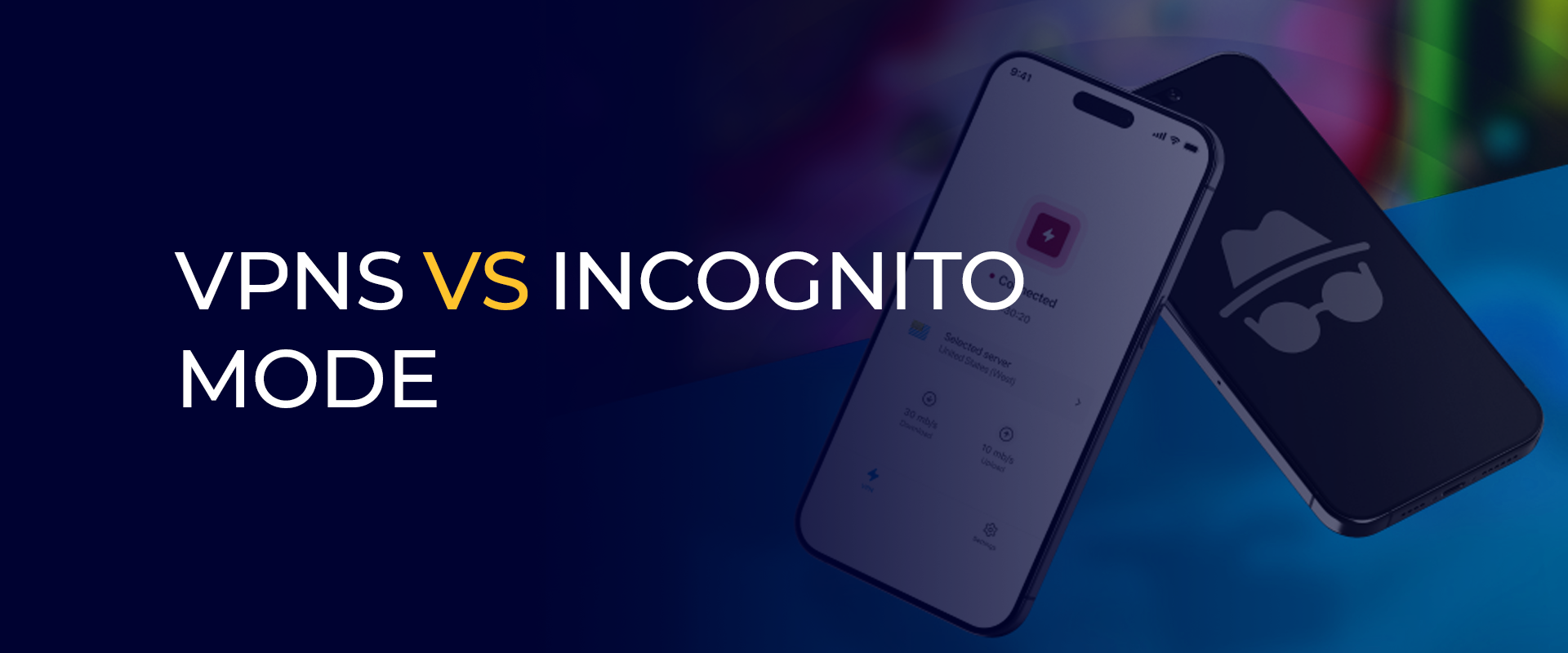You can see how this popup was set up in our step-by-step guide: https://wppopupmaker.com/guides/auto-opening-announcement-popups/
- FastestVPN
- Privacy & Security
- VPNs vs Incognito Mode: What You Need to Know About Anonymity
VPNs vs Incognito Mode: What You Need to Know About Anonymity
By Nick Anderson No Comments 5 minutes
It’s no secret that in today’s digital age, technology touches every part of our daily lives, changing how we shop, eat, work, and even date. But this convenience comes at a cost. Every online action leaves behind a digital trail that can be tracked. Advertisers monitor your behavior to target you with personalized ads, data brokers compile detailed profiles, and your internet service provider quietly logs your activity. In short, your digital life is far from private.

Many opt for anonymity for a variety of reasons, one being privacy when disclosing sensitive information. This doesn’t necessarily have to be when online banking or shopping; there are many other instances when users prefer to keep themselves ‘under the radar’ for well-warranted reasons. This even applies to pastimes like online gambling. That’s why there are VPN-friendly casinos for such players. Not only that, if you register through NoDepositKings.com, you’ll even be able to use a variety of no-deposit bonuses.
Incognito mode and VPNs are both widely used to enhance online privacy, but they serve very different purposes. Although they’re often grouped together, they aren’t interchangeable. In this article, we’ll break down the key differences and help you decide which one is the right fit for your privacy needs.
Note: VPNs and Incognito Mode offer different levels of online privacy. While Incognito only hides local browsing history, FastestVPN encrypts your internet traffic, providing real anonymity and security.
Understanding Incognito Mode
Incognito mode is a built-in privacy feature offered by most web browsers. It prevents your browsing history, cookies, and cached data from being saved once you close your private window. This means your online activity is hidden from other users on the same device and limits how much information is stored locally.
However, while temporary data is erased when the session ends, any files you download or bookmarks you create will remain on your device. And despite common belief, incognito mode does not make you invisible online.
While it hides your activity from others who use your device, your internet service provider (ISP), the websites you visit, and even your employer or school can still track your online behavior. Incognito mode doesn’t mask your IP address or prevent websites from collecting data; it simply offers local privacy, not full anonymity.
Let’s take a closer look at the key benefits and limitations.
No History Logging
Incognito mode lets you browse the web without leaving a trail of your activity on your device. For example, if you’re secretly shopping for an engagement ring, you can do it without worrying about your partner stumbling across your search history; everything is wiped once you close the window. No saved history, no cached pages, no cookies, just a clean slate.
Tracking Prevention
While incognito mode helps reduce tracking by not saving cookies, browsing history, or cached data on your device, it doesn’t hide your IP address or other identifying information from websites or internet service providers (ISPs). This means that, although it offers some level of privacy on your device, it doesn’t prevent websites or ISPs from tracking your online activity or identifying you.
No Password Data
In an age where cybercrime is rampant, it’s essential to protect your sensitive information from prying eyes. Using incognito mode ensures your password data is kept secure. While you won’t be able to enjoy the convenience of auto-filling form fields, you can rest assured that your passwords are safe from being stored or exposed.
Uncovering the Power of VPN
A Virtual Private Network (VPN) is a tool that creates a secure, encrypted connection for your web traffic, protecting it from unwanted attention. When you use a VPN, your web traffic is sent through a VPN provider’s server. This hides your real IP address, making it look like you’re browsing from the server’s location instead of your own. As a result, anyone trying to track you will only see the server’s IP address, not yours.
Unlike incognito mode, which only hides your activity on your device, a VPN offers better privacy by hiding your browsing from your internet service provider (ISP), the websites you visit, and other trackers. VPNs also let you bypass geographic restrictions on content. For example, if you connect to a VPN server in the US, websites will think you’re in the US, giving you access to content that’s normally limited to that region.
However, keep in mind that no system is perfect. If your VPN connection is misconfigured or disconnected unexpectedly, your real IP address could be exposed. Also, not all VPN providers promise complete privacy; some may keep logs of your activity while you’re connected to their servers.
Final Thoughts
When it comes to online privacy and anonymity, VPNs provide a significantly stronger level of protection compared to incognito mode. If you’re simply looking to keep your browsing private from others who share your device, incognito mode may be sufficient. However, if you want true anonymity, the ability to bypass geographic restrictions, and protection from surveillance by ISPs and websites, a VPN is a better choice. Ultimately, it all depends on your specific needs and how these privacy tools can help you achieve them.
Take Control of Your Privacy Today! Unblock websites, access streaming platforms, and bypass ISP monitoring.
Get FastestVPN
Get the Deal of a Lifetime for $40!
- 800+ servers for global content
- 10Gbps speeds for zero lagging
- WireGuard stronger VPN security
- Double VPN server protection
- VPN protection for up to 10 devices
- 31-day full refund policy



